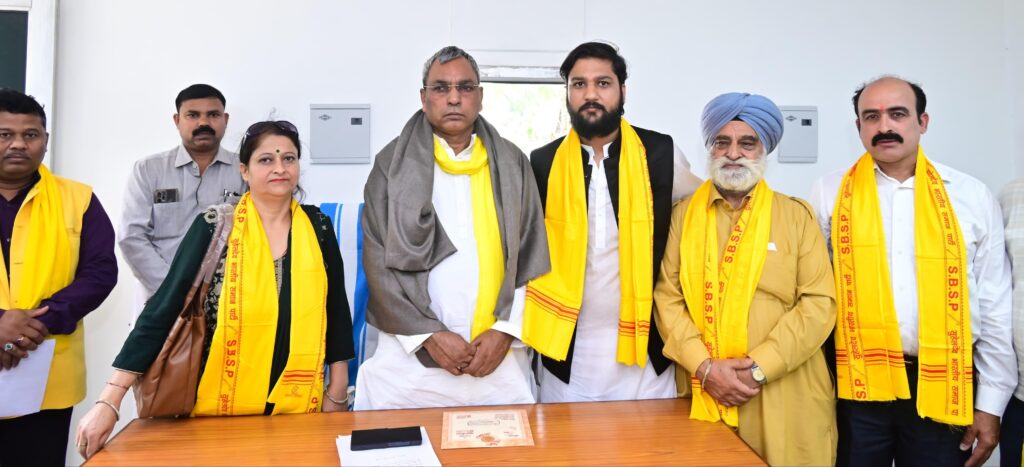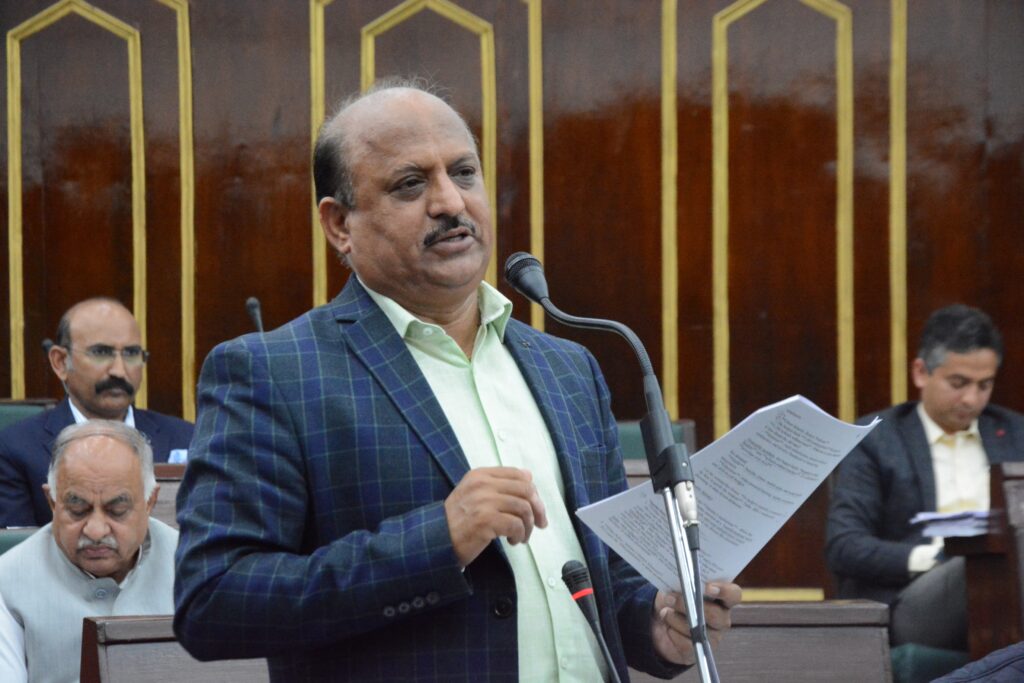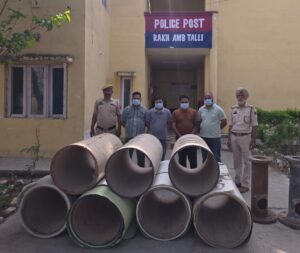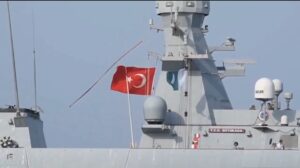Watch the Video: Turkey’s Naval Ship Docks at Karachi; A Strategic Signal Amid Indo-Pak Tensions
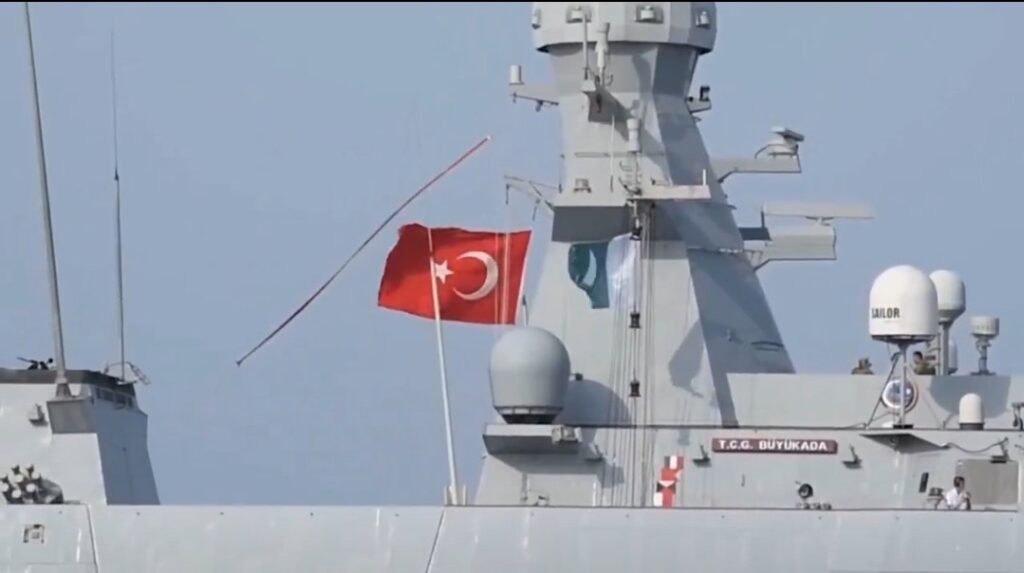
On May 5, 2025, the Turkish naval ship TCG Büyükada arrived at Karachi Port in Pakistan, a move that has sparked intense speculation given the escalating tensions between India and Pakistan. The visit, officially described as a goodwill gesture to strengthen maritime cooperation between Pakistan and Turkey, comes at a critical juncture following the April 22 terrorist attack in Pahalgam, Kashmir, which killed 26 people, mostly Indian tourists. With India blaming Pakistan for the attack and taking punitive measures, the timing of Turkey’s naval presence raises questions about its geopolitical implications in the context of the Indo-Pak conflict.
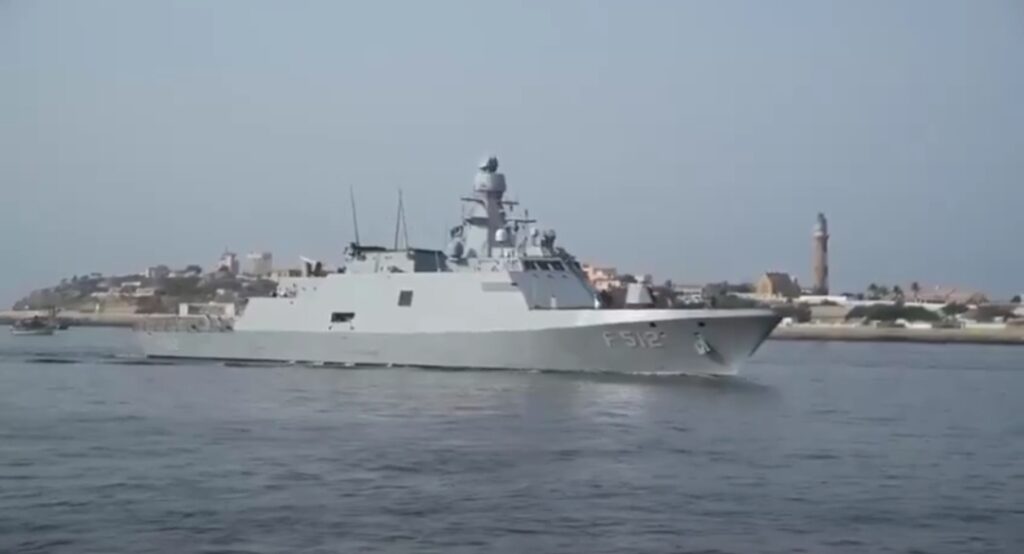
The Indo-Pak Conflict: A Volatile Backdrop
The Pahalgam attack has reignited longstanding tensions between India and Pakistan, nuclear-armed neighbors with a history of conflict over Kashmir. India has accused Pakistan of sponsoring the attack, a charge Islamabad denies. In response, New Delhi has implemented a series of retaliatory measures, including suspending the Indus Waters Treaty, closing the Attari-Wagah border, banning Pakistani ships from Indian ports, and halting bilateral trade. The Indian Navy has also conducted live-fire exercises in the Arabian Sea, just 85 nautical miles from Pakistan’s naval drills, signaling heightened military readiness.
Pakistan, meanwhile, has test-fired a ballistic missile and threatened to suspend the 1972 Simla Agreement, which underpins the Line of Control (LoC) in Kashmir. Cross-border exchanges of fire along the LoC have persisted for days, and Pakistani officials have claimed “credible intelligence” of an imminent Indian military strike. Amid this war rhetoric, diplomatic channels remain strained, with global powers like the United States and China urging de-escalation.
Turkey’s Naval Visit: Strategic or Symbolic?
The arrival of TCG Büyükada, a stealth corvette equipped with anti-ship missiles and torpedoes, has been framed by Pakistan and Turkey as a routine diplomatic visit to bolster maritime ties. An official statement emphasized the “deep-rooted mutual trust and strategic partnership” between the two nations, rooted in historical and cultural ties. However, the timing—days after the Pahalgam attack and amid fears of an Indian naval blockade—has led to varied interpretations.
Some analysts view the visit as a symbolic gesture of solidarity with Pakistan. Turkey has historically supported Pakistan on the Kashmir issue, and its intelligence agencies have been linked to anti-India activities alongside Pakistani counterparts. Posts on X have described the visit as a “message at sea,” suggesting Turkey’s intent to signal support for Pakistan in a potential conflict with India. Others, however, argue it is a routine port call, similar to a recent Turkish naval visit to Oman, and not necessarily an escalation.
Turkey’s foreign policy complicates the picture. While Ankara has backed Pakistan diplomatically, its $10 billion trade with India in 2024 constrains its ability to openly confront New Delhi. Turkey recently clarified that it is not supplying weapons to Pakistan, indicating a cautious approach to maintain economic ties with India. This suggests the naval visit may be more about projecting influence in the region than directly challenging India.
Implications for the Indo-Pak Conflict
The presence of a Turkish warship in Karachi carries several potential implications:
- Regional Power Dynamics: Turkey’s move reflects its ambition to expand its influence in South Asia, leveraging its close ties with Pakistan. By docking a warship in Karachi, Turkey signals its willingness to play a role in regional security dynamics, potentially complicating India’s strategic calculations.
- Perceived Provocation: For India, the visit may be seen as a provocative act, especially given Turkey’s past support for Pakistan on Kashmir. Social media posts on X have speculated that the timing “speaks escalation,” with some suggesting Turkey is interfering in India’s plans for a military response. This perception could further strain India-Turkey relations, already tense due to Ankara’s pro-Pakistan stance.
- Pakistan’s Diplomatic Maneuvering: For Pakistan, the visit is a diplomatic win, projecting an image of international support amid its isolation following India’s punitive measures. By hosting a Turkish warship, Pakistan aims to deter Indian aggression and bolster its narrative of resilience against India’s military posturing.
- Risk of Miscalculation: While a full-scale war between India and Pakistan remains unlikely due to the nuclear deterrent and global calls for restraint, the naval posturing—India’s drills, Pakistan’s missile tests, and now Turkey’s presence—heightens the risk of miscalculation. A minor incident at sea could escalate tensions, especially in the strategically vital Arabian Sea.
Global Context and De-escalation Efforts
The international community is closely monitoring the situation. U.S. Secretary of State Marco Rubio has engaged with both Indian and Pakistani leaders to urge de-escalation, while Pakistan’s ambassador to Russia has sought Moscow’s mediation, referencing the 1966 Tashkent Agreement. China, a key ally of Pakistan, has also called for calm, reflecting global concerns about a nuclear flashpoint.
Turkey’s naval visit, while not a direct escalation, adds a layer of complexity to these efforts. It highlights the challenge of managing third-party involvement in a bilateral conflict, especially when regional powers like Turkey seek to assert their influence.
Conclusion
The docking of TCG Büyükada at Karachi Port is a multifaceted development in the Indo-Pak conflict. While officially a goodwill visit, its timing and context suggest a strategic signal of Turkey’s support for Pakistan amid heightened tensions with India. For New Delhi, it emphasizes on the need for diplomatic vigilance to counter Pakistan’s efforts to rally international backing. For the region, it serves as a reminder of the delicate balance required to prevent a volatile situation from spiraling into open conflict.
As India and Pakistan navigate this crisis, the international community must intensify efforts to facilitate dialogue and prevent third-party actions from exacerbating tensions. The Arabian Sea, now a stage for naval posturing, remains a critical space to watch in the days ahead.

